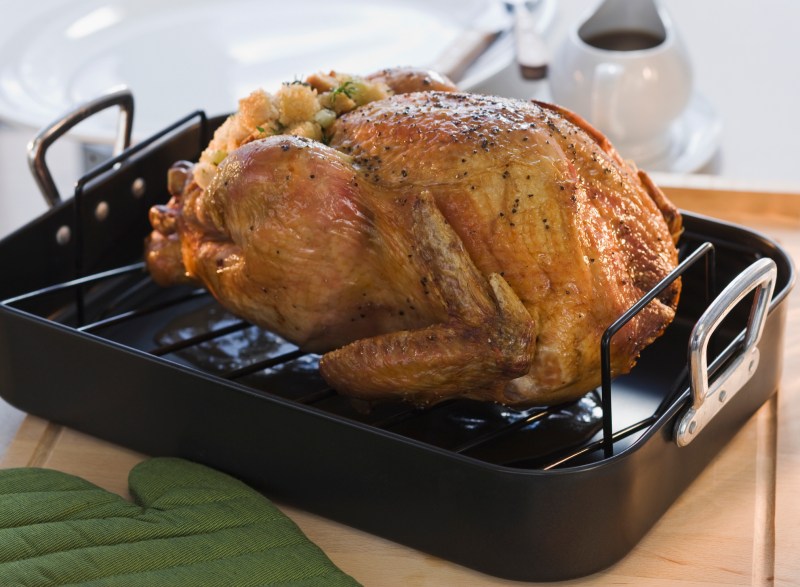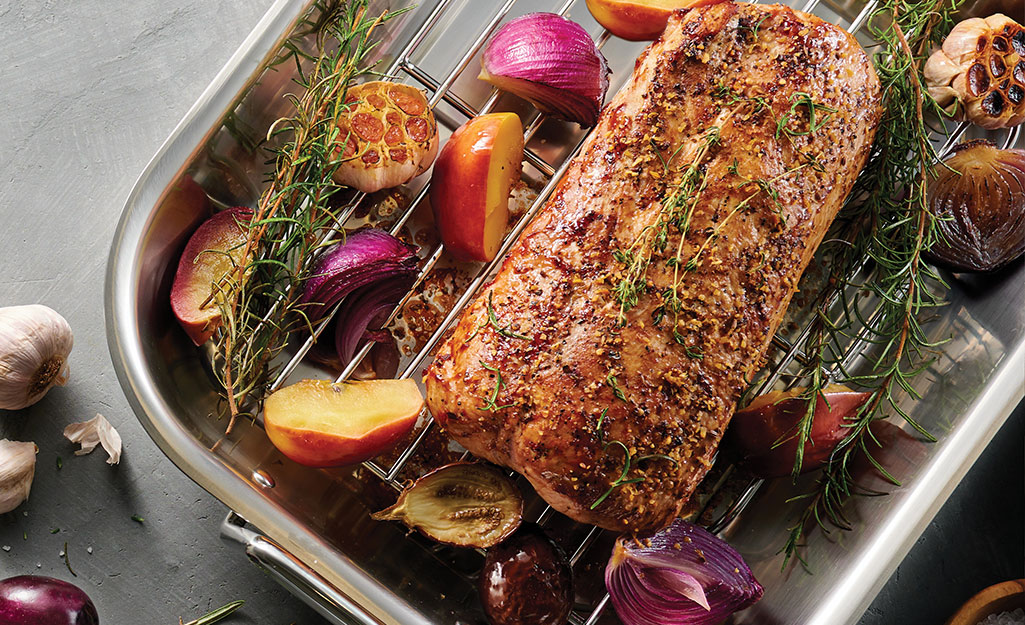Choosing the Best Pan for Roasting Vegetables: A Dedicated Guide
Written By James Morgan
When it comes to perfecting your barbecue, the right tools make all the difference. For barbecue enthusiasts, understanding what pan to use for roasting vegetables is essential. Whether it's for a backyard grill-out or a fine dining experience at home, the pan you choose can significantly impact the flavor and texture of your vegetables.
Properly roasted vegetables can elevate any dish, and mastering the art of roasting relies heavily on using the correct pan.

The Importance of Roasting Vegetables
Why roast vegetables in the first place? Roasting vegetables enhances their natural flavors, caramelizes their sugars, and keeps their nutrients intact. When done right, roasted veggies can be a delicious, healthy addition to any meal.

Types of Pans for Roasting Vegetables
Sheet Pans
Sheet pans, also known as baking sheets, are a common choice. They're versatile and spacious, making them ideal for roasting a large batch of vegetables at once. A sturdy sheet pan ensures even cooking and helps vegetables achieve that perfect crispy exterior. To check the perfect size for your needs, visit what-size-roasting-pan.
Cast Iron Skillets
Cast iron skillets are beloved by many for their heat retention properties. They allow vegetables to cook evenly and develop a beautiful, caramelized crust. For barbecue enthusiasts who love that rich, smoky flavor, a cast iron skillet is an excellent option.
Stainless Steel Pans
Stainless steel pans are durable and can handle high heat without warping. They provide even heat distribution and are easy to clean. Stainless steel is also non-reactive, so it won't affect the taste of your vegetables.
Ceramic Pans
Ceramic pans offer a non-stick surface without any artificial chemicals. They heat evenly and add a touch of elegance to your kitchen. For those who prioritize aesthetics and functionality, ceramic pans are a great choice.

Factors to Consider When Choosing a Pan
Here are some crucial factors to keep in mind when selecting the best pan for roasting vegetables:
Pan Material
The material of the pan affects heat distribution, durability, and the final taste of your vegetables. Pan materials like cast iron, stainless steel, and ceramic each have unique properties that make them suitable for different types of roasting.
Size and Depth
The size of the pan should correspond to the amount of vegetables you plan to roast. A too-small pan won't allow proper air circulation, resulting in steamed rather than roasted veggies. Depth also matters; deeper pans can trap moisture and lead to softer textures. Need to manage space efficiently? Learn more from what-to-put-in-bottom.
Coating and Non-stick Properties
A non-stick coating can be beneficial, making cleanup easier and ensuring vegetables don't stick to the pan. However, beware of chemical coatings that might impact the flavor of your food.

Tips for Perfectly Roasted Vegetables
To achieve perfectly roasted vegetables, follow these expert tips:
- Preheat Your Pan: Preheating ensures that your vegetables start cooking immediately upon contact, leading to better caramelization.
- Avoid Overcrowding: Give your vegetables enough space to breathe. Overcrowding can lead to steaming rather than roasting.
- Use High Heat: Roasting at high temperatures (around 425F or 220C) is ideal for achieving crispy exteriors and tender interiors.
- Toss in Oil: Lightly coat your vegetables in oil to promote even cooking and enhance their natural flavors.
- Season Well: Don't be shy with the seasoning. Salt, pepper, garlic, and herbs can elevate the taste of your vegetables.
Top Picks: Best Pans for Roasting Vegetables
Here are some top-rated pans that barbecue enthusiasts swear by for roasting vegetables:
Lodge Cast Iron Skillet
This timeless classic is known for its unparalleled heat retention and even cooking. The Lodge Cast Iron Skillet helps vegetables develop a fantastic sear and deep, rich flavors.
Nordic Ware Baker's Half Sheet
A heavy-duty aluminum sheet pan, the Nordic Ware Baker's Half Sheet provides excellent heat conductivity and is perfect for roasting vegetables evenly.
All-Clad Stainless Steel Roasting Pan
Renowned for its quality, the All-Clad Stainless Steel Roasting Pan ensures consistent heat distribution and durability, making it an excellent choice for serious roasters.
GreenLife Ceramic Non-Stick Sheet Pan
This eco-friendly option offers superb non-stick properties without harmful chemicals. The GreenLife Ceramic Non-Stick Sheet Pan is great for health-conscious cooks.
Cleaning and Maintenance Tips
Proper cleaning and maintenance of your roasting pans ensure they last longer and perform better. Here are some cleaning tips:
- Avoid Abrasive Cleaners: Use gentle dish soap and soft sponges to prevent scratching the pan's surface.
- Season Your Cast Iron: Regularly season your cast iron skillet to maintain its non-stick properties and prevent rust.
- Dry Thoroughly: After washing, make sure to dry your pans completely to avoid any moisture-induced damage.
- Store Properly: Store pans in a dry, cool place to keep them in optimal condition.
For those persistent issues like rust, here is a detailed guide on removing-rust-from-enamel.
Common Mistakes to Avoid
Avoid these common pitfalls to make the most of your vegetable roasting:
- Not Preheating the Pan: This can result in uneven cooking.
- Overcrowding the Pan: Leads to steaming instead of roasting.
- Skipping the Toss: Not tossing vegetables in oil and seasoning can lead to bland results.
Benefits of Roasting Vegetables
Roasting vegetables offers numerous benefits:
- Enhanced Flavor: Roasting brings out the natural sweetness and depth of vegetables.
- Retained Nutrients: Unlike boiling, roasting retains most of the vegetables' nutrients.
- Versatile: Roasted vegetables can be used in various dishes such as salads, sides, and even mains.
- Easy to Prepare: Roasting is a simple, hands-off cooking method perfect for busy barbecue enthusiasts.
- Healthy: Roasted vegetables are low in fat and high in fiber, making them a nutritious choice.
FAQs
1. What is the Best Pan for Roasting Vegetables?
The best pan depends on your preferences and what you prioritizeheat retention, non-stick properties, or aesthetics. Popular choices include cast iron skillets, stainless steel pans, and ceramic pans.
2. How Do You Prevent Vegetables from Sticking?
Using a non-stick pan or lining your pan with parchment paper can help. Tossing vegetables in a bit of oil also prevents sticking.
3. Can You Roast Vegetables on the Grill?
Absolutely! Using a cast iron skillet or a grill-safe roasting pan can help you achieve perfectly roasted vegetables with a smoky flavor unique to grilling.
To delve deeper into the best uses of your roasting pan, check out this guide from Michelin.
As an Amazon Associate, I earn from qualifying purchases.



